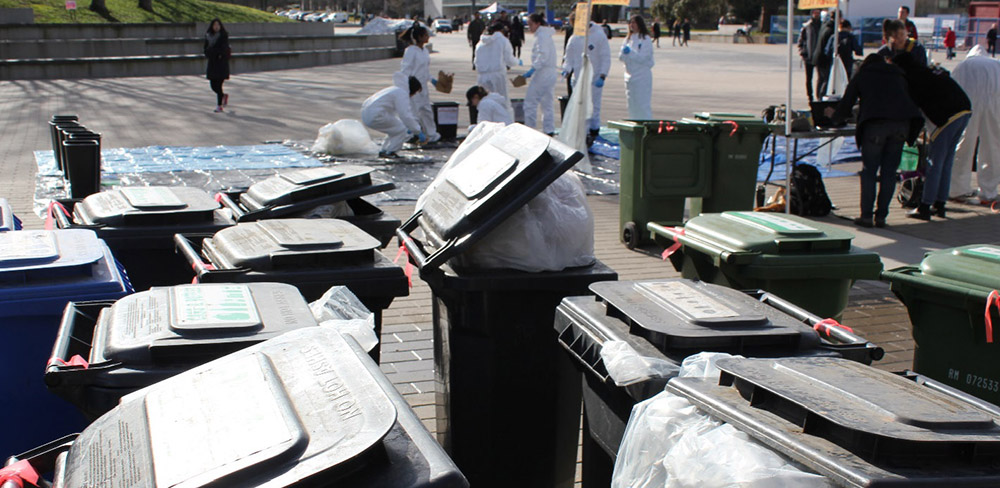Target
By 2030, UBC will apply a circular economy lens to enable a 50% reduction in waste, progressing toward a zero-waste community.
Rationale
While UBC’s reported GHG emissions from waste disposal are a very small fraction of overall emissions, waste-related emissions are much higher when considering life cycle emissions that include production of goods and materials – analogous to what is included in embodied carbon calculations for construction. In 2019, the Ellen MacArthur Foundation reported that 45% of 2050 global emissions reductions will need to address production of goods and materials, and circular economy strategies could eliminate almost half of these emissions.
A Zero Waste Action Plan update planned for 2022 will more strongly prioritize emissions reductions opportunities such as reuse, apply a circular economy lens, and address barriers that have limited progress toward UBC’s zero waste goals to date.
Take Action Now
From reducing your consumption, exploring options for reuse and repair, purchasing sustainably, and recycling, learn how you can help UBC build a zero-waste community and reduce the number of items that go to landfill -- and find the resources and programs to support you.
